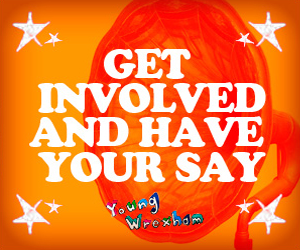Information » Money » Money while you work » Tax
In This Section
Tax
Tax is a compulsory fee that you must pay to the government to help finance the country.
There are many different types of tax.
Income Tax
When you start work, you may be taxed on your income. This is known as income tax.
It is paid by all employees and self-employed people earning over a certain amount per year.
Your income tax is the Government’s biggest source of income. They use it to pay for things like the NHS (National Health Service), benefits, education, transport, environment and defence.
There is no minimum age for income tax.
Some sources of income, like child or housing benefit, are exempt (excluded) from income tax.
Income Tax: Personal Allowance
If you were born after 5th April 1948 and earn under £100,000, the first £10,000 of your income will not be taxed. This is called your ‘personal allowance’.
If you are self-employed or have an income but are not working, your personal allowance will be taken into account when the Inland Revenue assesses your tax liability each year (you send them a profit statement, they send you a bill).
If you are an employee, you will be taxed under Pay As You Earn (PAYE) through your wages i.e. you will pay tax every week or month from your wages and your personal allowance will be spread throughout the year.
This means that each week or month you will be left with a certain amount of tax-free income after the tax has been deducted.
Income Tax: Rates
Confusingly, your personal allowance is the first £10,000 (annually) of your so-called ‘taxable income’ even though it cannot be taxed! This means that the actual amount on which you get taxed is lower than your ‘taxable income’.
For example, if your taxable income is £35,000, you will only be taxed on £25,000 of it. This amount can be known as your ‘taxable income above your personal allowance’.
How much income tax you pay depends on your taxable income above your personal allowance. Currently, if it’s below £31,866, you pay the 20% ‘basic rate’ of tax. So, if your taxable income is £35,000, you pay 20% on £25,000 (£35,000 minus £10,000).
Currently, if your taxable income above your personal allowance is between £31,866 and £150,000, you pay the ‘higher rate’ of tax, 40%.
Currently, anyone with a taxable income above their personal allowance that is greater that £150,000 pays the ‘additional rate’ of tax, 45%.
Also, everyone automatically pays 20% tax on their savings interest.
The rates are announced in the Budget every year. You can check the up-to-date rates here.
Income Tax: Should I be paying?
To work out if you should be paying Income Tax, simply add up all your taxable income and subtract your tax-free allowances, including your personal allowance (above).
If you have anything left, you should be paying tax*! If you should be but aren’t paying tax, you must contact the Income Tax helpline.
If you have nothing left, you should not be paying tax and you might need a refund! The important details are here.
To find out if you’re paying the right amount of Income Tax, use the tax checker on the HM Revenue and Customs (HMRC) website.
Please Note: Some benefits are counted as taxable income, so be sure to include them in your sums! These include Jobseeker’s Allowance, Carer’s Allowance and contribution-based Employment and Support Allowance. The full list is here.
Again, you won’t necessarily pay tax on this income – *you only pay if your total taxable income is greater than your total allowances.
Tax Relief
If you are a taxpayer and spend money on certain things, like certain employment expenses or paying into a pension scheme, the amount you spend can be deducted from your total taxable income. This means you will pay less tax.
There is different tax relief for employees and self-employed people so check with the Citizens Advice Bureau for what qualifies.
If you think you are not paying the right amount of tax or have a question about income tax, contact your local Inland Revenue office or talk to your company's finance department.
Council Tax
Council tax is a tax charged by your local government to part-fund the services they provide.
How much you pay depends on the value of the property that you rent or own. This value depends on the size of your house and the location of it.
You will be placed into different bands (levels) based on this value. Different councils charge different amounts for each band.
A full Council Tax bill is based on at least 2 adults (over 18’s) living in a home, so you’ll get 25% off your bill if you’re an adult and live on your own.
There are a lot of other discounts and exceptions. For example, young people under 25 who get funding from the Skills Funding Agency or Young People’s Learning Agency don’t count as an adult for Council Tax.
Also, households where everyone is a full-time student don’t have to pay Council Tax at all. If the household has someone who isn’t a full-time student, it will get a discounted Council Tax bill.
You can see the full list of Council Tax exemptions here.
If you’re on a low income or claiming benefits, you can apply to your council to get money off your Council Tax bill. You can apply here.
Normally, you pay council tax bills every 10 months but you can choose to spread your payments over 12 months, if that makes it easier to pay your bill. You have to contact your local council to set this up – you can find your council here.








